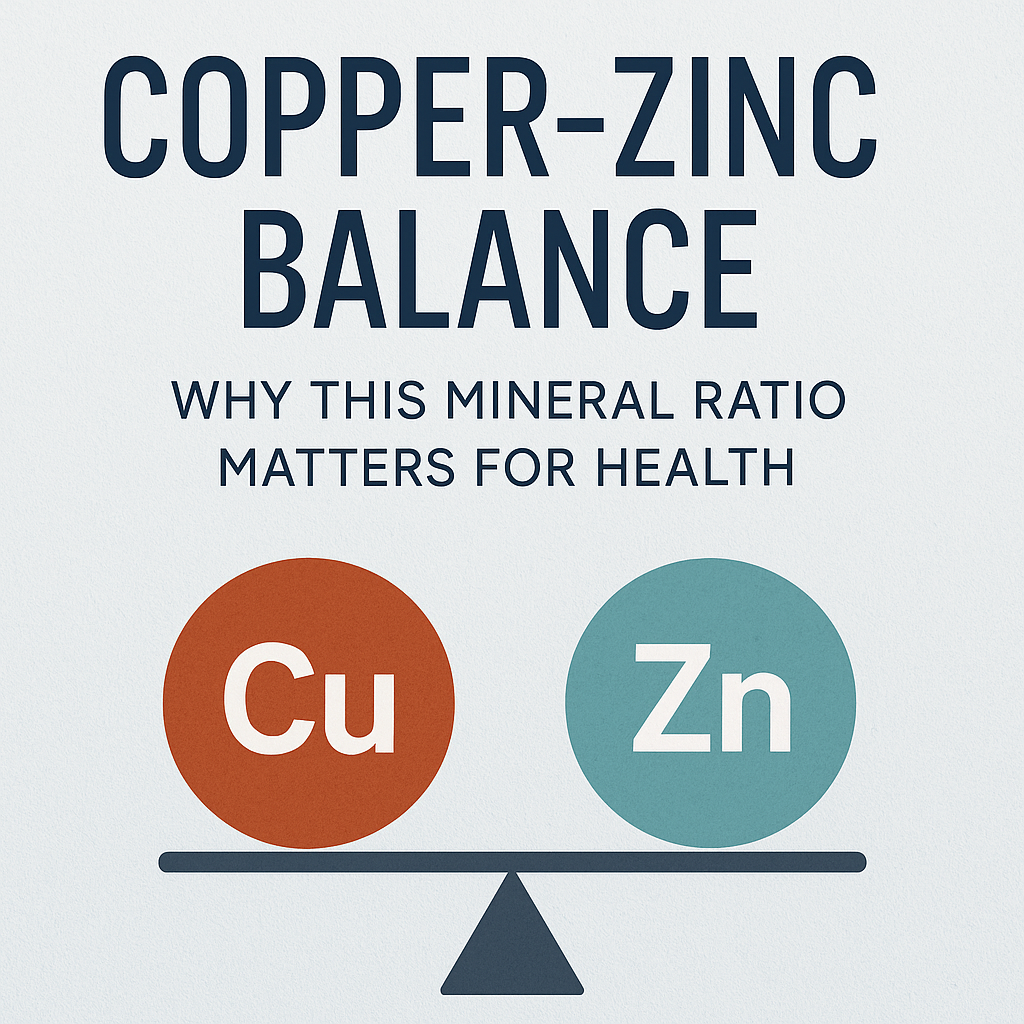The Copper-Zinc Balance: A Critical Link to Health, Immunity, and Longevity
Maintaining a proper balance between copper and zinc is crucial for optimal health. These essential trace minerals play vital roles in numerous physiological processes, and their interplay significantly influences various aspects of well-being, including immune function, neurological health, and metabolic processes. This comprehensive guide delves into the importance of the copper-zinc balance, the consequences of imbalances, and strategies to maintain optimal levels.
Understanding Copper and Zinc
Zinc: The Immune System's Ally
Zinc is indispensable for immune function, wound healing, DNA synthesis, and cellular metabolism. It supports growth and development and has antioxidant properties that combat oxidative stress. Zinc deficiency can lead to a weakened immune response, delayed wound healing, hair loss, and increased susceptibility to infections.
Copper: The Metabolic Catalyst
Copper is essential for iron metabolism, energy production, and the functioning of the nervous and cardiovascular systems. It acts as a cofactor for enzymes involved in oxidative stress defense and neurotransmitter synthesis. Copper deficiency can result in anemia, neurological disorders, and compromised immune function.
The Interplay Between Copper and Zinc
Copper and zinc have a competitive relationship in the body, particularly concerning absorption in the gastrointestinal tract. High levels of one can inhibit the absorption of the other, leading to potential deficiencies. This antagonistic interaction underscores the importance of maintaining a balanced ratio between these minerals.
Health Implications of Imbalances
High Copper-to-Zinc Ratio
An elevated copper-to-zinc ratio has been associated with various health issues:
-
Inflammation and Oxidative Stress: An imbalance can impair the activity of antioxidant enzymes like superoxide dismutase, leading to increased oxidative stress and inflammation.
-
Neurological Disorders: Studies have linked a high copper-to-zinc ratio to conditions such as Alzheimer's disease, autism spectrum disorders, and attention-deficit/hyperactivity disorder (ADHD).
-
Immune Dysfunction: Excess copper relative to zinc can compromise immune function, increasing susceptibility to infections.
-
Cardiovascular Health: Imbalances may contribute to cardiovascular diseases by promoting oxidative damage to blood vessels.
Low Copper-to-Zinc Ratio
Conversely, a low copper-to-zinc ratio, often due to excessive zinc supplementation, can lead to:
-
Copper Deficiency: Symptoms include anemia, neutropenia, and neurological issues like numbness and tingling.
-
Impaired Enzyme Function: Copper-dependent enzymes involved in energy production and antioxidant defense may become less effective.
Factors Influencing Copper-Zinc Balance
Several factors can disrupt the delicate balance between copper and zinc:
-
Dietary Intake: Diets high in processed foods may lack adequate levels of these minerals.
-
Supplementation: Excessive intake of zinc supplements can inhibit copper absorption, leading to deficiency.
-
Medical Conditions: Conditions like celiac disease or surgeries affecting the gastrointestinal tract can impair mineral absorption.
-
Medications: Certain medications, including antacids and diuretics, can affect mineral levels.
Strategies to Maintain Optimal Balance
Dietary Recommendations
Incorporate foods rich in both copper and zinc:
-
Zinc Sources: Oysters, beef, poultry, beans, nuts, whole grains, and dairy products.
-
Copper Sources: Shellfish, nuts, seeds, whole grains, and dark chocolate.
Supplementation Guidelines
-
Balanced Supplements: Choose supplements that provide both copper and zinc in appropriate ratios to prevent imbalances.
-
Medical Supervision: Consult healthcare providers before starting any supplementation, especially if you have underlying health conditions or are taking other medications.
Regular Monitoring
-
Laboratory Testing: Periodic testing of serum copper and zinc levels can help detect imbalances early.
-
Symptom Awareness: Be vigilant for signs of deficiencies or excesses, such as fatigue, immune dysfunction, or neurological symptoms.
Conclusion
The balance between copper and zinc is a critical aspect of maintaining overall health. Imbalances can have far-reaching effects, impacting immune function, neurological health, and metabolic processes. By understanding the roles of these minerals and implementing strategies to maintain their balance, individuals can support their well-being and reduce the risk of associated health issues.
Note: This article is for informational purposes only and does not substitute professional medical advice. Always consult with a healthcare provider for personalized recommendations.


